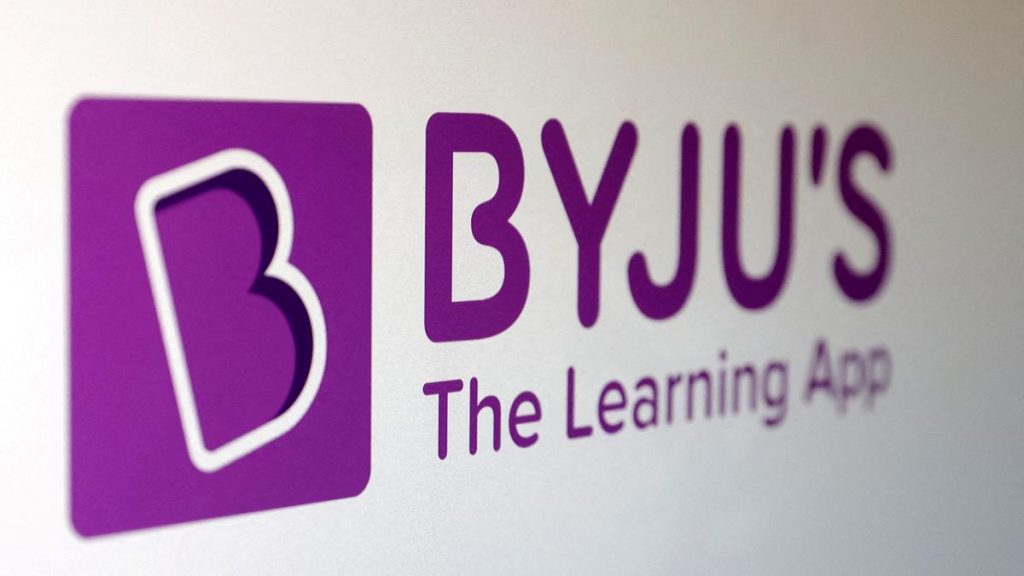
A file image is used for representational purpose only.
| Photo Credit: Reuters
The National Company Law Appellate Tribunal (NCLAT) has set aside the appeals filed by BCCI and Riju Raveendran seeking withdrawal of insolvency proceedings against Byju’s and consider the settlement between the debt-ridden edtech firm and the apex cricket body.
They had challenged the order passed by the Bengaluru bench of the National Company Law Tribunal, which had on February 10, 2025 directed to place their settlement offer before the new Committee of Creditors (CoC), in which U.S.-based Glas Trust, the trustee for lenders to which Byju’s owes $1.2 billion, is a member.
Also read: How India’s Byju’s went from startup star to facing insolvency
A two-member Chennai bench of the NCLAT comprising Justice Rakesh Kumar Jain and Jatindranath Swain upheld the directions passed by the NCLT and said the settlement proposal was filed after the formation of CoC, hence as the provisions of section 12 A of the Insolvency & Bankruptcy Code, it requires the approval of the lender’s body.
Both BCCI and Riju have contended that since the application under Section 12A was filed before the constitution of the CoC, the provisions of Section 12A coupled with Regulation 30A(1)(a) shall apply and not Regulation 30A(1)(b).

Section 12 A of IBC prescribes an exit route from insolvency. It mandates that NCLT may allow the withdrawal of insolvency initiated by any financial or operational creditor under section 7,9 or section 10, based on an application made with the approval of 90 per cent voting share of the CoC.
However, Regulation 30A(1)(a) deals with the provision of filing 12 A through the interim resolution profession before formation of CoC, while 30A(1)(b) deals with provision of filing after formation of CoC.
It was contended by both of them that form FA, which is an application for withdrawal of Corporate Insolvency Resolution Process, was submitted before the formation of CoC of Byju’s.
However, rejecting the plea NCLAT said, ”Form FA, admittedly having been filed on November 14, 2024, is post (formation of) CoC.”
“If the application under Section 12A is filed under Regulation 30A(1)(a) before the constitution of CoC then Section 12A which mandates the approval of such application for withdrawal by 90 per cent voting share of the CoC shall not apply but if the application is filed after the constitution of the CoC then the provisions of Section 12A shall apply with full force,” said NCLAT.
CIRP against Byju’s was initiated on July 16, 2024 by NCLAT admitting a ₹158.90 crore claim from BCCI as an operational creditor of edtech major. An IRP was appointed also by the NCLT in this matter.
Later, a settlement was arrived between the parties and Byju Raveendran approached NCLAT. The appellate tribunal set aside the insolvency proceedings against Byju’s on August 2, 2024 setting aside the insolvency proceedings after approving dues settlement with the BCCI, which had entered into a Team Sponsor Agreement with the cricket body in 2019.
This was challenged by Glas Trust before the Supreme Court. Glas Trust, a financial creditor, had also filed a separate petition before NCLT seeking resolution of its debt of $984.3 million (approximately ₹8,200 crore).
The apex court on October 23 set aside the NCLAT order staying the CIRP against Think & Learn, which owns edtech brand Byju’s and asked BCCI to approach NCLT for the settlement.

Although BCCI submitted Form FA to the Interim Resolution Professional (IRP) on August 16, 2024, it had instructed the IRP to file it only after the resolution of an appeal pending before the Supreme Court.
Riju had contended that there was a delay on the part of the IRP in filing the withdrawal form.
Rejecting this, NCLAT said: ”We also do not agree with the Appellant on the issue that the IRP had erred in not submitting the application for withdrawal within three days as stipulated in Regulation 30A(3) because of the fact that the Appellant himself had directed/ asked the RP to file form FA only after the dismissal of the appeal which was otherwise allowed on 23.10.2024.”
“Thus, in view of the above facts and circumstances, we do not find any merit in these two appeals, therefore, both the appeals are hereby dismissed, though without any order as to costs,” said NCLAT in its 36-page long judgement.
Published – April 18, 2025 11:31 pm IST

